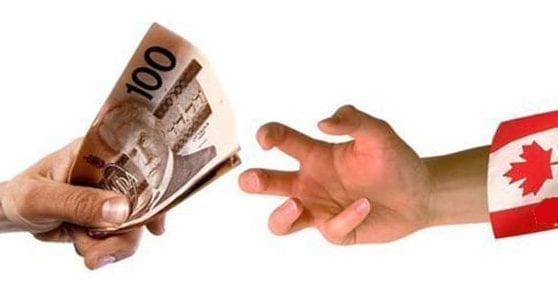By Jake Fuss,
Milagros Palacios
and Jason Clemens
The Fraser Institute
In the classic Aesop’s Fable, a slow-moving tortoise challenges a self-assured hare to a race. Immediately, the hare jumps out in front and becomes overconfident. He naps halfway through the race and wakes up to find his competitor passing him.

When it comes to staying competitive with the United States, federal Finance Minister Bill Morneau could learn from the hare’s mistakes, with an eye on the upcoming Fall Economic Statement from the government of Prime Minister Justin Trudeau.
Despite the successful efforts of both Liberal and Conservative governments during the 1990s and 2000s, when Canada jumped out in front with a lower marginal effective tax rate (METR) on new investment than our southern neighbours, we have suddenly been surpassed.
Canada has fallen asleep midway through the race and is in for a rude awakening.

Palacios
For more than a decade, Canada had a significant tax advantage over the U.S. due to our relatively low marginal effective tax rate on capital. the administration of U.S. President Donald Trump cut the federal business tax rate from 35 per cent to 21 per cent and allowed companies to immediately write-off capital spending,, the U.S. METR was cut in half to 18.8 per cent compared to 20.3 per cent in Canada.
Simply put, we have lost our competitive tax advantage and are now a far less attractive country to investment, which is crucial to economic growth, increased labour productivity and technological change.
We’ve compounded our competitiveness problem by maintaining excessively high personal income tax rates on professionals, entrepreneurs and business owners. The top combined personal income tax rates now exceed 50 per cent in seven provinces while the other three provinces follow closely behind.

Clemens
Consequently, Canadian provinces comprise nine of the 10 jurisdictions with the highest combined personal income tax rates in Canada and the U.S. In total, 48 states (and the District of Columbia) have lower combined top tax rates than Saskatchewan – the province with the lowest top tax rate in Canada. High personal income taxes discourage people from productive economic activity and make Canada a less attractive place for entrepreneurs and skilled workers, including engineers and doctors.
To make matters worse, regulations have also damaged our ability to compete, as our processes have become increasingly complex, inefficient and unpredictable. Foreign investors have made it known that Canada’s complex regulatory system is a main reason why they choose not to invest in Canada. Regulatory burdens have increased costs, delayed projects (including high-profile pipeline projects) and restricted growth and innovation.
Meanwhile, the U.S. federal government has enacted a “two-for-one” rule, which involves removing two federal regulations for every new one that’s implemented. In fiscal 2018 alone, the U.S. saved more than $23 billion, thanks to 176 deregulatory initiatives.
Not surprisingly, the investment community has sent strong negative signals to Canada. Between 2013 and 2017, Canadians increased their investments in other countries by a staggering 73.7 per cent. Conversely, Canada experienced a 55.1 per cent decline in foreign direct investments over that period. It appears capital is fleeing at an alarming rate.
In the upcoming Fall Economic Statement, Morneau must address Canada’s declining competitiveness. We must overhaul our tax system, address capital investment challenges and simplify our regulatory systems.
If we don’t wake up soon, we may never catch up.
Jake Fuss, Milagros Palacios and Jason Clemens are economists at the Fraser Institute.
The views, opinions and positions expressed by columnists and contributors are the author’s alone. They do not inherently or expressly reflect the views, opinions and/or positions of our publication.
